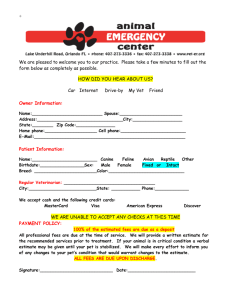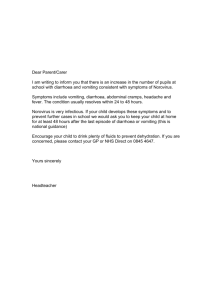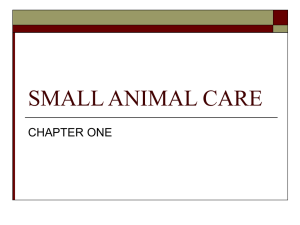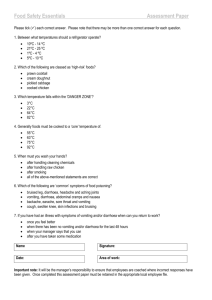Vaccinations
advertisement
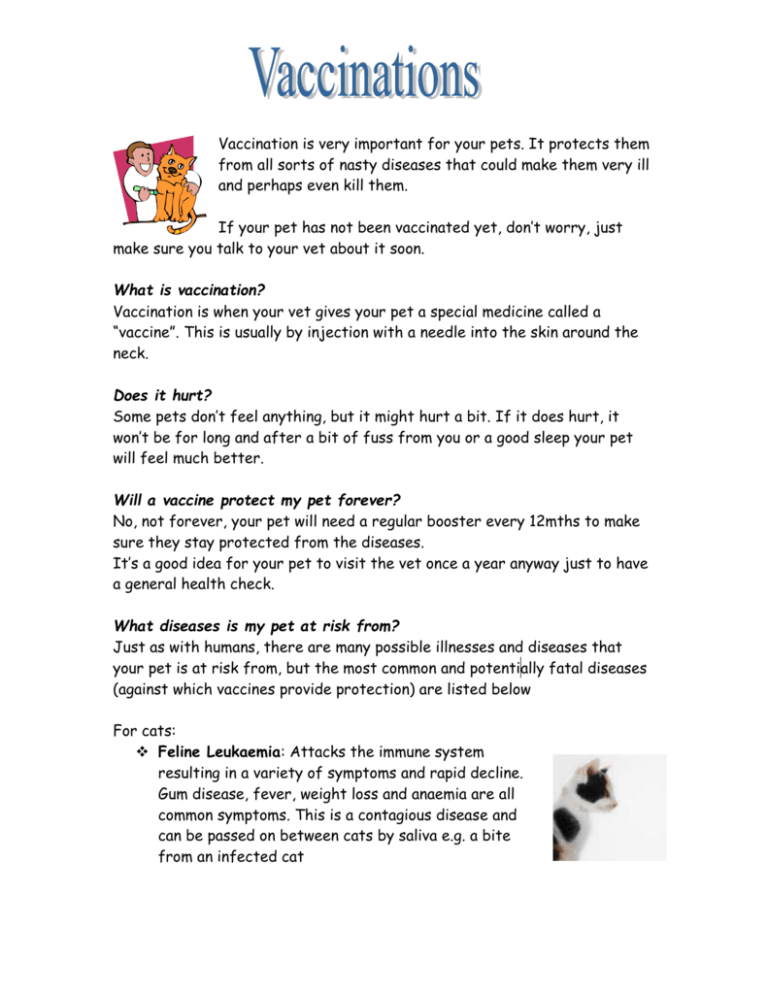
Vaccination is very important for your pets. It protects them from all sorts of nasty diseases that could make them very ill and perhaps even kill them. If your pet has not been vaccinated yet, don’t worry, just make sure you talk to your vet about it soon. What is vaccination? Vaccination is when your vet gives your pet a special medicine called a “vaccine”. This is usually by injection with a needle into the skin around the neck. Does it hurt? Some pets don’t feel anything, but it might hurt a bit. If it does hurt, it won’t be for long and after a bit of fuss from you or a good sleep your pet will feel much better. Will a vaccine protect my pet forever? No, not forever, your pet will need a regular booster every 12mths to make sure they stay protected from the diseases. It’s a good idea for your pet to visit the vet once a year anyway just to have a general health check. What diseases is my pet at risk from? Just as with humans, there are many possible illnesses and diseases that your pet is at risk from, but the most common and potentially fatal diseases (against which vaccines provide protection) are listed below For cats: Feline Leukaemia: Attacks the immune system resulting in a variety of symptoms and rapid decline. Gum disease, fever, weight loss and anaemia are all common symptoms. This is a contagious disease and can be passed on between cats by saliva e.g. a bite from an infected cat Cat Flu: Very unpleasant. Symptoms include sneezing mucus, coughing, runny eyes and exposed third eyelids, ulcerated mouth and nose and loss of appetite. Extremely common and highly contagious. Can prove fatal in older cats and kittens. Feline Enteritis: Attacks the white blood cells, reducing immunity. The commonest symptom is severe gastroenteritis. Cats become depressed and dehydrated from vomiting and diarrhoea. For Dogs: Canine Parvovirus: Rapid decline, vomiting, refusal to eat and drink, rapid dehydration, abdominal pain and bloody diarrhoea. Extremely hardy virus, transmitted via faeces of infected dogs. Often fatal. Canine Distemper: Coughing, vomiting, runny nose and eyes, loss of appetite and diarrhoea, may experience fits. An airborne virus that puts younger dogs at greatest risk. Infectious Canine Hepatitis: Vomiting, pale gums, very high temperature, loss of appetite, abdominal pain, diarrhoea. Later on jaundice. An airborne virus that affects the liver. Can be fatal. Young dogs at greatest risk. Leptospirosis: Sleepiness, high temp, severe thirst, urinating often, abdominal pain, bloody diarrhoea and jaundice. Transmitted by contact with rat urine or rat infected water. In extreme cases death can occur within hours. Parainfluenza and Bordetella Bonchiseptica: Major causes of kennel cough. Persistent and harsh coughing. Highly contagious especially in dog kennels. For Rabbits: Myxomatosis: It is caused by a virus. The first signs of infection are puffy, fluid filled swellings around the head and face. “Sleepy eyes” are another classic sign along with swollen lips, tiny swellings on the inside of the ear and puffy swellings around the anus and genitals. Eating and drinking becomes progressively more difficult and death usually follows within 12 days. The infection is spread by insects. Viral Heamorrhagic Disease (VHD): The main symptom for this disease is severe gastro-enteritis, with bloody diarrhoea and also bleeding from the eyes, nose mouth, anus etc. This disease progresses rapidly and is usually fatal.
